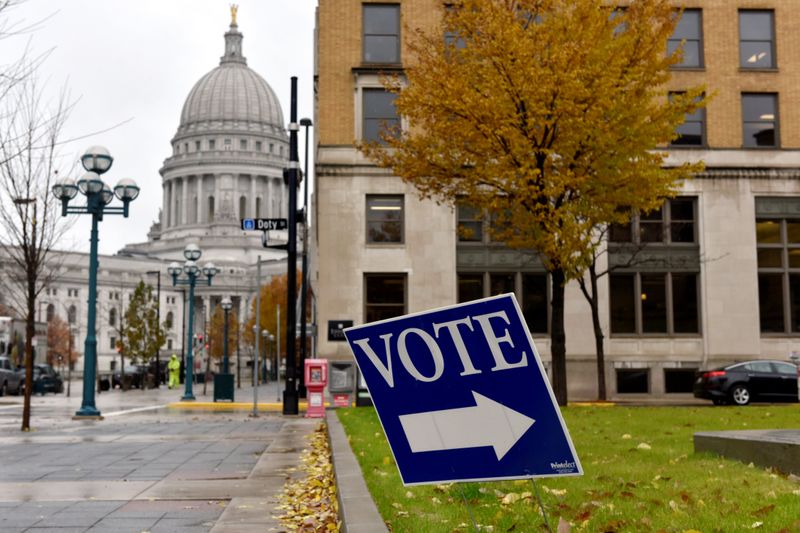By Joseph Ax
(Reuters) - Wisconsin's highest court rejected a third-party candidate's bid to join November's presidential ballot, a move that would have invalidated tens of thousands of ballots already mailed to voters and potentially thrown the election process into chaos.
The court ruled the Green Party's presidential slate could not be added to the ballot because the party's candidates waited too long to challenge the elections commission's decision to exclude them due to discrepancies in their paperwork.
Election officials had warned that forcing them to order more than 1 million ballots reprinted with Green Party presidential candidate Howie Hawkins (NASDAQ:HWKN)' name would have caused mass confusion while calling into question whether new ballots could even be finished in time for the election.
The rate of mail-in voting is expected to balloon across the country this year, as voters avoid polling sites in light of the ongoing coronavirus pandemic. President Donald Trump, a Republican, has repeatedly claimed that the use of mail ballots will lead to fraud, though experts say there is no evidence to back his assertion.
Trump will face Democrat Joe Biden, the former vice president, in the Nov. 3 presidential election. Wisconsin, which narrowly voted for Trump in 2016, is considered a crucial swing state in this year's campaign.
"Election chaos averted," the state's Democratic attorney general, Josh Kaul, said in a statement. Kaul's office had defended the elections commission in the case.
A spokesman for Hawkins, Robert Smith, said the decision ignored the commission's "unlawful actions."
"Now we have a dangerous precedent where a major party can effectively decide which minor parties can participate in elections, by conjuring up arbitrary requirements on the fly to remove its opposition," he added.
Wisconsin's elections commission in August had rejected signature petitions filed by Hawkins and his running mate, Angela Walker, because they showed two different addresses for Walker.
Hawkins and Walker filed a petition with the Supreme Court two weeks later, and the court on Thursday instructed local governments to stop sending out ballots until it reached a decision.
But on Monday, a divided 4-3 court vacated that order, finding that a last-minute ballot change would create havoc.
The court said many ballots have already been sent to voters, who would likely be unsure what to do if a second ballot arrived in the mail. The justices also noted that under state and federal law, clerks must send all requested absentee ballots later this week, a deadline that would be impossible to meet if mass reprints were ordered.
"It would be unfair both to Wisconsin voters and to the other candidates on the general election ballot to interfere in an election that, for all intents and purposes, has already begun," the court wrote.
One of the court's conservative justices, Brian Hagedorn, joined the three more liberal justices to form a slim majority.

The state already experienced election disarray during its primary in April, when the court's conservative majority rejected Governor Tony Evers' last-minute effort to delay the vote and ordered the vote to proceed despite objections from public health officials.
